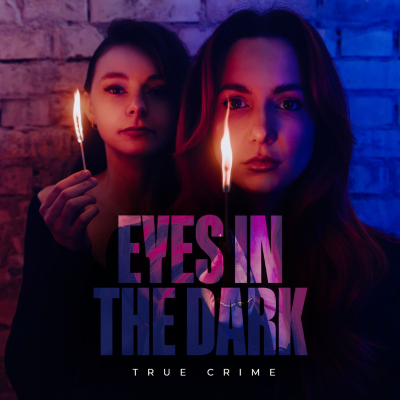
The Book Review
Podcast von The New York Times
Nimm diesen Podcast mit

Mehr als 1 Million Hörer*innen
Du wirst Podimo lieben und damit bist du nicht allein
Mit 4,7 Sternen im App Store bewertet
Alle Folgen
551 FolgenWe’re halfway through 2025, and we at the Book Review have already written about hundreds of books. Some of those titles are good. Some are very good. And then there are the ones that just won’t let us go. On this week’s episode of the podcast, Gilbert Cruz and Joumana Khatib talk about some of the best books of the year so far. Here are the books discussed in this week’s episode: “King of Ashes,” by S.A. Cosby “The Director,” by Daniel Kehlmann “A Marriage at Sea,” by Sophie Elmhirst “Careless People,” by Sarah Wynn-Williams “Isola,” by Allegra Goodman “The Catch,” by Yrsa Daley-Ward “Daughters of the Bamboo Grove,” by Barbara Demick “The Sisters,” by Jonas Hassen Khemiri “The Buffalo Hunter Hunter,” by Stephen Graham Jones “Wild Thing: A Life of Paul Gauguin,” by Sue Prideaux “Raising Hare,” by Chloe Dalton “To Smithereens,” by Rosalyn Drexler “The Fate of the Day,” by Rick Atkinson “Flesh,” by David Szalay “Things in Nature Merely Grow,” by Yiyun Li “These Summer Storms,” by Sarah MacLean Unlock full access to New York Times podcasts and explore everything from politics to pop culture. Subscribe today at nytimes.com/podcasts [https://nytimes.com/podcasts] or on Apple Podcasts and Spotify.
Some time ago, the British journalist Sophie Elmhirst was reporting a story about people who try to escape the land and to live on the water. “I found myself trolling around as you do in these moments, online and on a website devoted to castaway stories and shipwreck stories,” she tells host Gilbert Cruz. “There were lots of photographs and tales of lone wild men who were pitched up on desert islands and had various escapades. And in among all of these was a tiny little black-and-white picture of a man and a woman." The couple were Maurice and Maralyn Bailey, a husband and wife who took to the seas from 1970s England, selling their suburban home to buy a boat and sail to New Zealand. Nine months into the trip, a sperm whale breached under their boat, leaving them stranded on a crude raft with an assortment of salvaged items, luckily including water, canned food, a camera — and a biography of King Richard III. Elmhirst tells the Baileys’ story in her new book, “A Marriage at Sea." Unlock full access to New York Times podcasts and explore everything from politics to pop culture. Subscribe today at nytimes.com/podcasts [https://nytimes.com/podcasts] or on Apple Podcasts and Spotify.
“Mrs. Dalloway said she would buy the flowers herself”: So reads one of the great opening lines in British literature, the first sentence of Virginia Woolf’s classic 1925 novel, “Mrs. Dalloway.” The book tracks one day in the life of an English woman, Clarissa Dalloway, living in post-World War I London, as she prepares for, and then hosts, a party. That’s pretty much it, as far as the plot goes. But within that single day, whole worlds unfold, as Woolf captures the expansiveness of human experience through Clarissa’s roving thoughts. On this week’s episode, Book Club host MJ Franklin discusses it with his colleagues Joumana Khatib and Laura Thompson. Other books mentioned in this episode: “The Passion According to G.H.,” by Clarice Lispector “A Girl Is a Half-Formed Thing,” by Eimear McBride “The Lesser Bohemians,” by Eimear McBride “To the Lighthouse,” by Virginia Woolf “Orlando,” by Virginia Woolf “A Room of One’s Own,” by Virginia Woolf “The Hours,” by Michael Cunningham “Headshot,” by Rita Bullwinkel “Tilt,” by Emma Pattee Unlock full access to New York Times podcasts and explore everything from politics to pop culture. Subscribe today at nytimes.com/podcasts [https://nytimes.com/podcasts] or on Apple Podcasts and Spotify.
On this week's episode, A.O. Scott joins host Gilbert Cruz to talk about the value of close reading poetry. And New York Times Book Review poetry editor Greg Cowles recommends four recently published collections worth reading. Books mentioned in this episode * "New and Collected Hell: A Poem," by Shane McCrae * "Ominous Music Intensifying," by Alexandra Teague * "Ecstasy: Poems," by Alex Dimitrov * "New and Selected Poems," by Marie Howe Unlock full access to New York Times podcasts and explore everything from politics to pop culture. Subscribe today at nytimes.com/podcasts [https://nytimes.com/podcasts] or on Apple Podcasts and Spotify.
Steven Spielberg’s movie “Jaws” hit theaters 50 years ago this month, in June 1975, and became a phenomenon almost instantly. In some ways that was no surprise: The Peter Benchley novel it was based on, also called “Jaws,” had been a huge best seller the year before, and the public was primed for a fun summer scare. Brian Raftery — the author of “Best. Movie. Year. Ever: How 1999 Blew Up the Big Screen” — wrote about “Jaws” for the Book Review last year in honor of the novel’s 50th anniversary, and this week he visits the podcast to talk about the book, the movie adaptation and the era of blockbuster thrillers. “If you’ve seen ‘Jaws,’ you could probably guess what the opening chapter of the book is,” he tells Gilbert Cruz (who has indeed seen “Jaws,” dozens of times). “It’s this shark attack, where this shark at night just devours this young female swimmer. The writing is really fun. It’s really gnarly, and it’s one of those amazing opening chapters where the book is moving as fast as the shark. After you read that first chapter, you are just completely pulled in.” We would love to hear your thoughts about this episode, and about the Book Review’s podcast in general. You can send them to books@nytimes.com [books@nytimes.com]. Unlock full access to New York Times podcasts and explore everything from politics to pop culture. Subscribe today at nytimes.com/podcasts [https://nytimes.com/podcasts] or on Apple Podcasts and Spotify.























